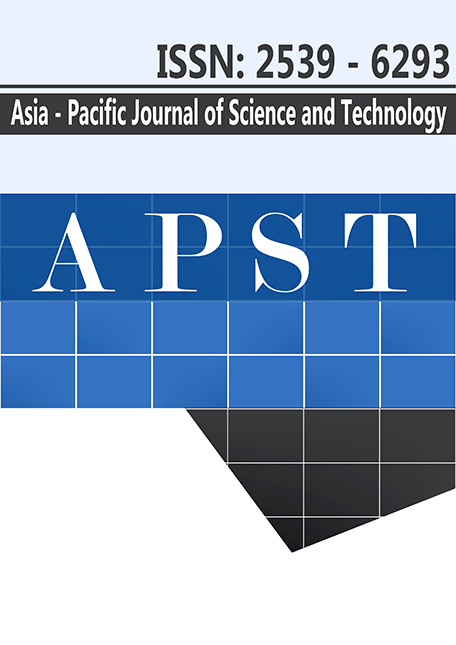Project based learning and team based learning for freshmen physics at Southern Taiwan University of Science and Technology
Main Article Content
Abstract
Many technical universities in Taiwan face a challenge on students lacking interest in traditional classroom learning. This article presents the preliminary results of the course transformation for the freshmen Physics class at Southern Taiwan University of Science and Technology. The class STUST 2025 is a pilot class that aims to provide students with a more hands-on approach to acquire knowledge by performing team-based learning and project-based learning approach for various courses and project courses every semester. Participants for this special class included 50 students who were divided into 10 groups and assigned specific Physics topics as a guideline for their projects. Students are required to discuss and submit a proposal during the midterms and the final project and report at the end of the semester. Students are evaluated base from their performance in making the projects and the contents of the submitted documentation. The pilot course showed that although this course change breaks away from the student’s traditional learning environment, they were able to learn to work in teams and learn from their respective projects. Learning includes the challenges of working with others in accomplishing a project together. It also provided students a deeper understanding of theories and its applications in actual settings through studying differences in the results of the theoretically calculated values and the actual experimental values. However, in order to have a more holistic learning approach, improvements on the current practice will be done such as providing additional homework and short quizzes. Eventually this kind of practice will be implemented university wide.
Article Details
References
Document]. URL taiwantoday.tw/news.php?unit=2,23,45&post=3029.
[2] Tseng, K.H., Chang, C.C., Lou, S.J., Chen, W.P., 2013. Attitudes towards science, technology, engineering
and mathematics (STEM) in a project-based learning (PjBL) environment. International Journal of
Technology and Design Education 23, 87–102.
[3] Chang, S.-H., Ku, A.-C., Yu, L.-C., Wu, T.-C., Kuo, B.-C., 2015. A science, technology, engineering and
mathematics course with computer-assisted remedial learning system support for vocational high school
students. Journal of Baltic Science Education, 14.
[4] Mills, J.E., Treagust, D.F., 2003. Engineering education—Is problem-based or project based learning the
answer? Australasian Journal of Engineering Education 3, 2-16.
[5] Holubova, R., 2008. Effective Teaching Methods--Project-based Learning in Physics, Online Submission
5, 27-36.
[6] Helle, L., Tynjälä, P., Olkinuora, E., 2006. Project-Based Learning in Post-Secondary Education – Theory,
Practice and Rubber Sling Shots, Higher Education 51, 287-314.
[7] Elizabeth, W., Malcolm, P., 1999. Real-life contexts for learning physics: meanings, issues and practice,
Physics Education 34, 68.
[8] Oakley, B., Felder, R.M., Brent, R., Elhajj, I., 2004. Turning student groups into effective teams, Journal
of student centered learning 2, 9-34.
[9] Verbič, G., Keerthisinghe, C., Chapman, A.C., 2017. A Project-Based Cooperative Approach to Teaching
Sustainable Energy Systems, IEEE Transactions on Education, 1-8.


